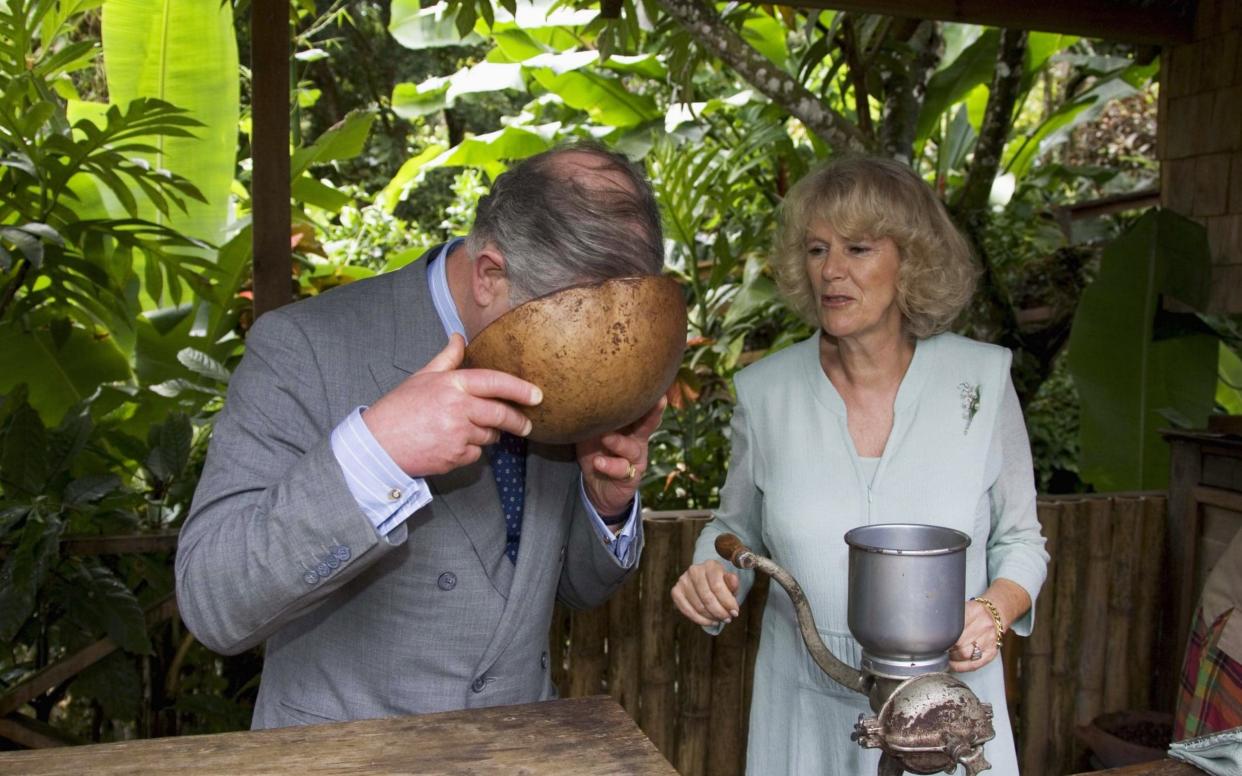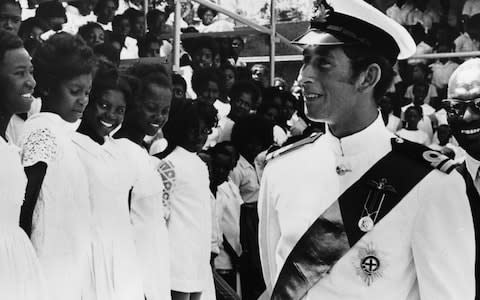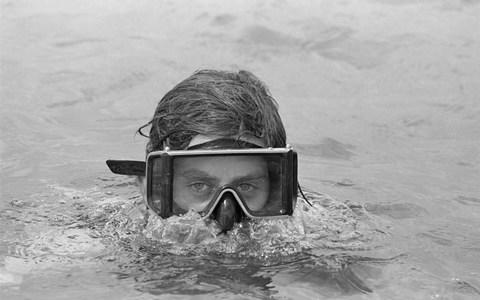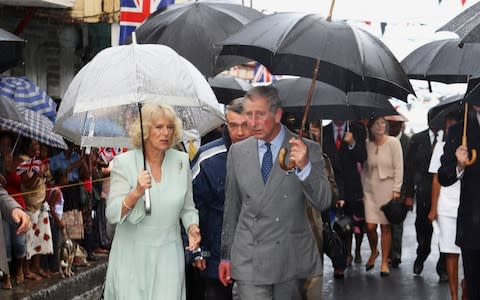Prince Charles begins Caribbean tour to win hearts as next head of Commonwealth

The Prince of Wales will today land in the Caribbean for his first trip to some of the island nations for 45 years, as he cements his role as the next head of Commonwealth with a tour to charm wavering members.
The Prince and Duchess of Cornwall, who will next week become the first members of the Royal Family to officially set foot in Cuba, is to visit five Commonwealth countries during the 11-day tour, spending a day in each to meet local politicians, see the culture and undertake events about the environment.
It will be the first time the Prince has been to Barbados, St Vincent and the Grenadines, St Kitts and Nevis and Grenada since 1973, and follows the 2018 confirmation that he will follow the Queen as the next head of Commonwealth.
The trip will see the Prince visit several countries where the issue of republicanism has created "sound and fury", with the then-prime minister of Barbados insisting in 2015 it would end its allegiance with the monarchy "in the very near future" with no results.
In 2009, St Vincent and the Grenadines held a referendum for people to decide whether to keep the Queen and her successors as head of state, with the republican side losing with 43.13 per cent of the vote.
While affection for the Queen remains high throughout the Commonwealth, the Prince will now embark on his own mission to personally charm members and demonstrate the continuing relevance of the monarchy.

The trip will see the Prince and Duchess of Cornwall spend a day in St Lucia, Barbados, Saint Kitts and Nevis, Saint Vincent and the Grenadines, and Grenada, where they will focus on critical local environmental issues and hurricane preparedness.
In one area, he will be photographed looking at the same view he saw in 1973, demonstrating what has happened to the local flora and fauna since.
Other focuses will include youth opportunity, with the Prince’s Trust International now working in the Caribbean, and the preservation of local customs and heritage sites.
By the end of the tour, which will see the Prince and Duchess land in the UK on March 28th just in time for a scheduled Brexit, they will have visited eight Commonwealth countries since the Prince of Wales was confirmed as the organisation’s next head during the Commonwealth Heads of Government Meeting in London 2018.
The most controversial leg by some measure will be the four days spent in Cuba, where no serving Prime Minister or member of the Royal Family has been in an official capacity.

When the trip was announced, Republican US senator Rick Scott issued a letter protesting the decision, saying: "A trip of this magnitude by the Crown provides unwarranted legitimacy to a dictatorship with a decades-long history of persecuting and imprisoning its defectors and repressing its people.”
A spokesman for the Foreign and Commonwealth Office has said: “Human rights is a subject that we discuss government-to-government with the Cubans. We’ve done so regularly over the years, and will continue to do so.”
The royal visit will instead emphasise the country’s culture with events relating to music, dance, poetry and food. Professor Philip Murphy, Director of the Institute of Commonwealth Studies, said there had been “a lot of sound and fury” about the idea of republicanism in the Caribbean, but “very little movement”, with monarchy well entrenched thanks to the Queen’s enduring popularity.
The Queen is currently head of state in 16 of the 53 countries which make up the Commonwealth. “The Queen herself is going through this golden sunset period,” said Prof Murphy.

“There's huge affection for her across the Commonwealth, where she's probably more popular than at any time since her honeymoon period.
“As long as she's alive, political leaders across the Commonwealth are not going to push a referendum so in a sense it makes it even more important that Prince Charles visits.
“He hasn't had a particularly strong profile in the Commonwealth - understandably because that was his mother's project - but he's been very much pushed to the fore recently.
“There's a feeling he really needs to raise his profile in the Commonwealth and this is an opportunity.”
In a speech in Ghana in November, the Prince said: “It is clear to me that the Commonwealth remains as vital today, as it has ever been. It brings us together, building bridges between our governments and our people, and offering the practical means to work together for a better future.”

